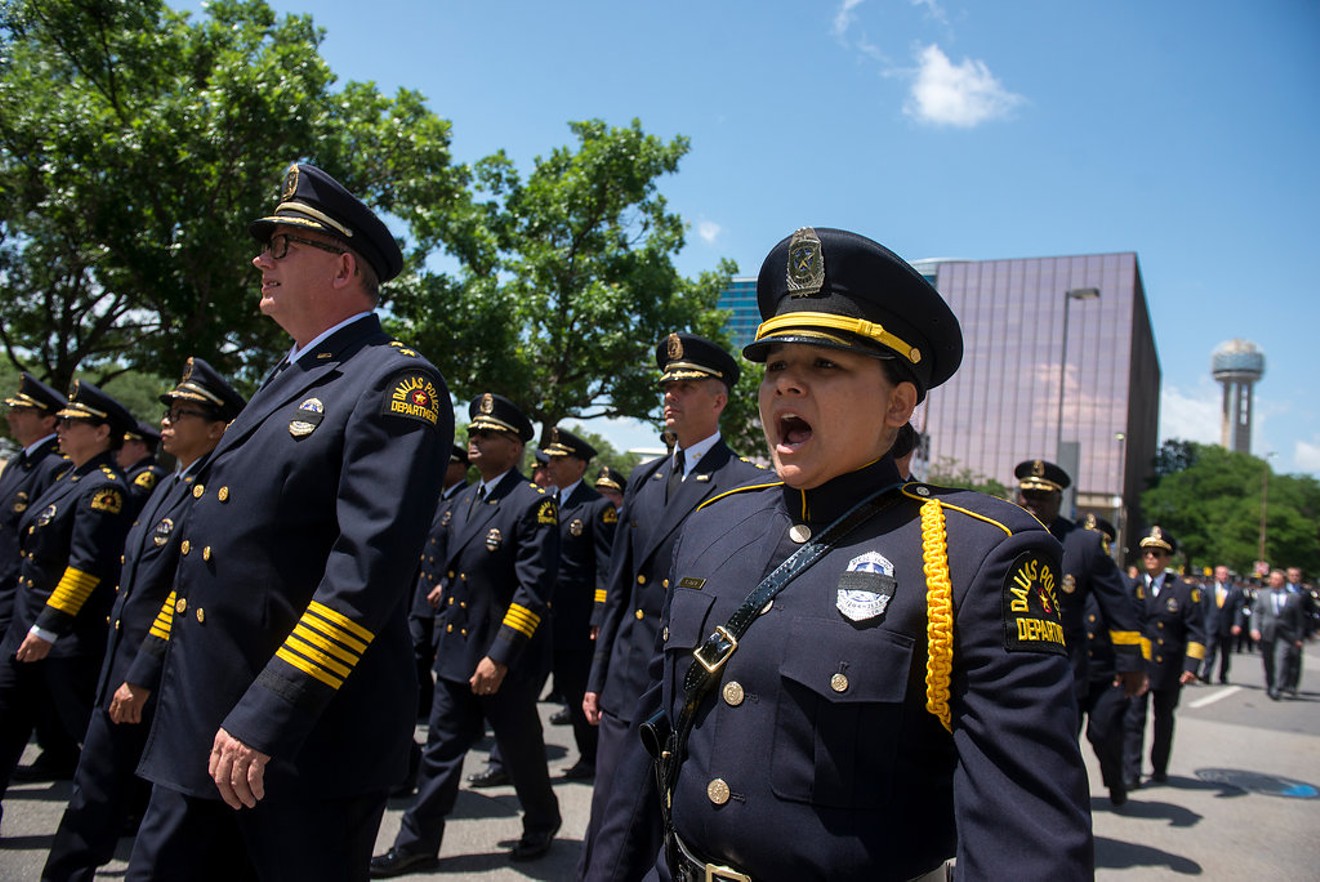According to the city, the "vast majority of the plaintiffs" in four lawsuits filed in Collin County have agreed to settle their claims that the city did not maintain appropriate ratios among pay grades for police and firefighter ranks. Had all the cases gone to trial and the city lost, Dallas could've been on the hook to for more than $4 billion, plaintiffs claim.
The lawsuits stem from a 1979 ballot referendum that gave a 15 percent raise to each of the city's first responders. In addition to the raise, voters approved language that called for "maintaining the current percentage pay differential between grades in the sworn ranks."
The plaintiffs in the lawsuits claim the city was required to maintain the percentage differences that existed among pay grades when it installed a new pay structure. The lawsuits and their potential outcomes hinge on what the word "maintaining" means to a jury. The city believes it applies one time only, to the 1979 pay increase, while the plaintiffs argue that the referendum approved by the voters required the city to maintain the pay grade differences indefinitely. If a jury were to find for the police and firefighters, the city would owe billions in back pay and interest, potentially enough to bankrupt the city.
"We maintain that the 1979 pay referendum was for a one-time raise. However, these lawsuits have cast a cloud over the city of Dallas for a very long time," Dallas Mayor Mike Rawlings said Friday night. "I believe this settlement is the right thing to do for the citizens of Dallas and our uniformed officers. It provides us some level of certainty and closure on four of the six pending lawsuits and avoids a trial that was set in just a few weeks.""We maintain that the 1979 pay referendum was for a one-time raise. However, these lawsuits have cast a cloud over the city of Dallas for a very long time." – Mayor Mike Rawlings
tweet this
Among the lawsuits pending settlement is Anthony Arredondo, et al. v. The City of Dallas, Texas, the first of the six suits scheduled to go to trial. Without a settlement, arguments will begin Dec. 4, but the city now has a chance to avoid that deadline.
Assuming the council signs off on the settlement, the two remaining pay lawsuits, class actions covering about 8,600 police and firefighters, are Rockwall County cases. Ted Lyon, the attorney representing the Rockwall plaintiffs, confirmed to the Observer in October that all of the plaintiffs in the cases offered to settle with the city for $300 million. The city turned that down, countering with an offer of $150 million.
Lyon said Friday that he isn't in negotiations with the city and remains ready to fight it out in court. “I know we’ve got a really strong case, and I think we’ll prevail at trial, but you never know,” he told WFAA-TV (Channel 8). “Not only yes, do we want to go to trial, but hell yes, we’ll go to trial.”












